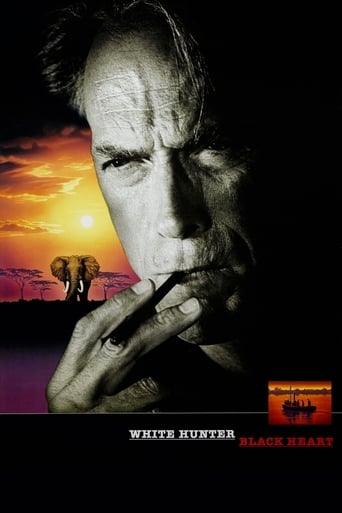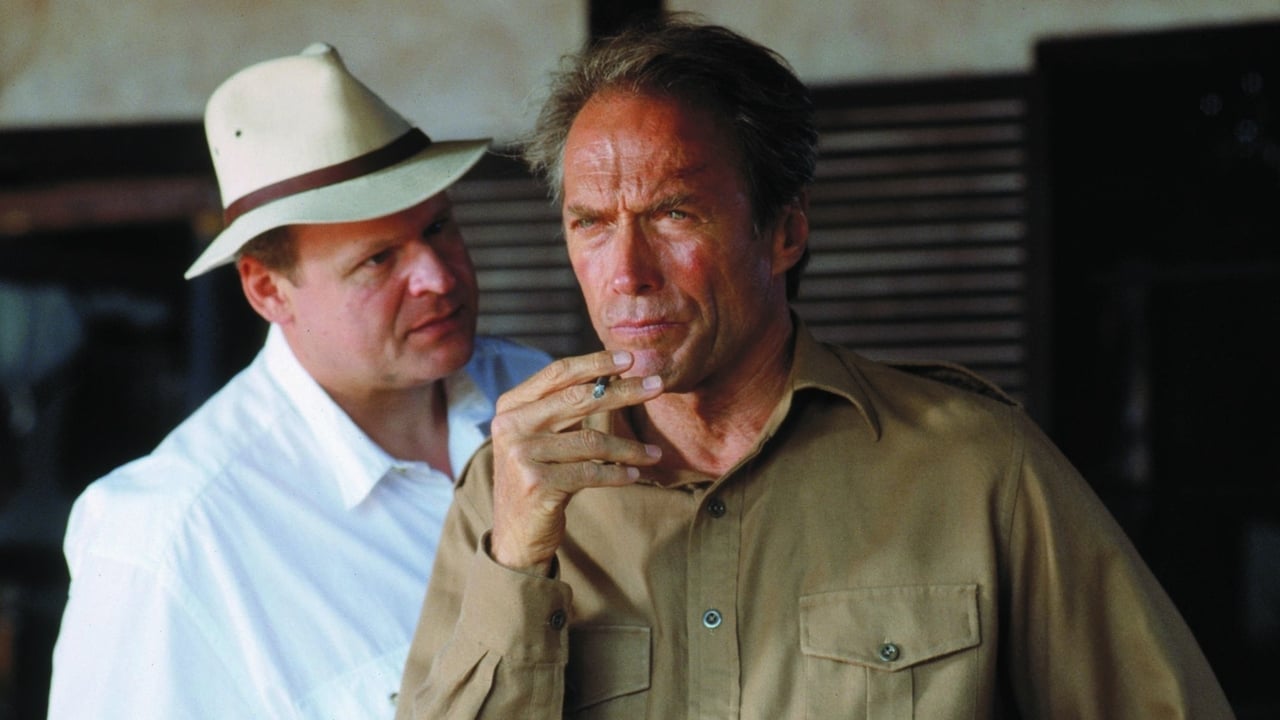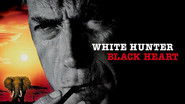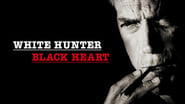tieman64
Most of Clint Eastwood's early films were reactionary fantasies. Later in his career he actively set out to repudiate the messages of these films. And so from the late 1980s onwards he'd specialise in films which meditate upon violence, critique machismo, flawed father figures and supposedly put forth "anti violence" messages, though in most cases ("Unforgiven", "Gran Torino" etc) what these films do and pretend to do are completely at odds.Eastwood's about turn - in which he attempts to atone for perceived past sins - inversely resembles many progressives of the 1960s, who promptly turned into ultra conservatives, often unconsciously becoming (cue the stereotypes) the very racist, homophobic, misogynistic, close minded, poor-hating folk (often what Eastwood's early characters were accused of being) they once rallied against. So while early Eastwood made war-baiting junk like "Firefox", latter Eastwood hugs Nelson Mandela. While early Eastwood made the quasi-fascist "Dirty Harry", latter Eastwood weeps over the death penalty ("True Crime"). While early Eastwood made Pentagon-porn "Heartbreak Ridge", latter Eastwood mourns the death of Japanese soldiers and questions the chauvinistic uses of famous Iwo Jima photographs. He's reformed, see.Eastwood's films during the second half of his career sometimes went interesting places, though, the best examples of which are probably "White Hunter, Black Heart" and "A Perfect World".An adaptation of a Peter Viertel novel (which detailed the author's experiences as a screenwriter on John Huston's "The African Queen"), "White Hunter, Black Heart" stars Eastwood as John Wilson, a no-nonsense, macho movie director who has a taste for adventure. Wilson, like the legendary John Huston, accepts a movie directing job in Africa solely because he wishes to hunt elephants. It's his dream to prowl the sierras with bullets and rifles, engaging in all manners of manly manliness. Acting wise, Eastwood's mimicry of the inimitable Huston is mostly inept, but his dialogue is so good and he's so charismatic as a movie star that Wilson nevertheless turns into one of Eastwood's more interesting performances. Refusing to glorify Wilson or sentimentalise Africa, the film spends most of its running time watching as Wilson speaks his mind, ruffles feathers, and fights to get his way, even if this all leaves him bruised and bleeding. "Take principled stands no matter the consequences," Wilson says. "If you fight, you feel okay about it!" Elsewhere he talks about the phoniness of happy endings, his disgust with the Hollywood money machine and his defence of the system's "whores", amongst whom he once counted himself. When a monkey grabs a screenplay and causes havoc Wilson bursts into laughter, the creatures vaudeville antics more in-tune with his own anarchic personality than the doctrines and strictures of the "civilised" white man.Pretty soon, though, Wilson becomes an Ahab-like character, obsessed with downing his own Moby Dick; a mighty elephant whose ivory he hopes to claim. As Wilson's movie crew, producers and screenwriters fret about their runaway production - Wilson spends more time in the African bush than on his own movie set - Wilson becomes increasingly unhinged; true men do what they want, he believes, and don't worry about whose toes they step on. Toes, though, are the very point of the film, as Wilson learns that his pigheadedness has far reaching consequences. The film then ends with Wilson confronting his elephant, a showdown which claims the lives of several African villagers, who up until this point have largely been invisible. Forced to confront his myopia, Wilson collapses into his director's chair: "action", he whispers.The film milks Eastwood's gleefully reckless, rabble rouser persona. But Wilson himself is a bag of complex contradictions. In many ways he is what he abhors, standing up for blacks against the racist Europeans who populate swank African hotels but bullying those below him in a similar fashion. He is simultaneously disgusted with the Hollywood money machine, even as he egotistically demands more time and money and nonchalantly abandons his own production. The film at once demonstrates how absolutely correct and righteous Wilson's pigheadedness sometimes was, whilst zeroing in on its ugly flip-side. And while the film attempts (albeit vaguely) to indict colonialism, egocentric notions of masculinity, imperialism, the blind arrogance of the white man toward the ramifications of his actions, Eastwood and Viertel's target is nevertheless a famous, all-American liberal film-maker, a paradox exemplified by Viertel's title.In terms of flaws, the film's climax is handled/shot poorly (though you try editing an elephant rampage so that it doesn't look goofy). Some moments drag or descend into shapelessness, but this is also part of the film's charm. Eastwood's direction is loose, jokey and devil-may-care, a tone which belies the seriousness of his material; shades of Huston's excellent "The Man Who Would be King".There are other similarities between the two directors. Both Eastwood and Huston were wildly uneven, passing back and forth between serious work and hack jobs. Both were also fond of a kind of minimalistic, non-fussed visual style, preferring few takes, fast shoots and small crews. But while Huston was fond of women, gambling, adventure, fast cars and cigars, Eastwood's the consummate workaholic. He's neither radical modernist, nor even post-modernist, but rather an old fashioned roll-up-your-sleeves and get-down-to-business guy with the back-lot efficiency of early Hollywood gun-for-hires. Watching Eastwood's career progress is like watching a simple beach boy who never wished to be an artist absorb influences and grow, blending a little Fuller, with Aldrich, Anthony Mann, Ford, Kurosawa, Siegel, Huston and Leone until he finally emerges, decades later, with some semblance of a distinct personality.8.5/10 - Worth one viewing.
SeanJoyce
Just prior to the success reaped by UNFORGIVEN, Eastwood unleashed this labor of love that scuttled beneath the radar and has since gone inexplicably underrated, even among die-hard Clint enthusiasts. Working with journeyman writer Pete Viertel (adapting the screenplay from his famed novel) and veteran western scribe Burt Kennedy, Clint (fulfilling the triple-threat of producer-director-actor) spins a controversial portrait of enigmatic Hollywood legend John Huston. Clint essays Huston in what is a semi-autobiographical look at the behind-the-scenes of the filming of the Bogie/Hepburn classic THE African QUEEN. John Huston was easily one of Hollywood's most complicated and larger-than-life figures, the "Hemingway of cinema". A highly-literate man who took great interest in art, he was also a hot-tempered brawler, inveterate boozer, and notorious womanizer. A master craftsman, Huston lacked any distinctive "style" as he eschewed tricks and gimmicks in favor of good old-fashioned story-telling. Behind the camera, Huston was responsible for an almost unequaled legacy of masterpieces, many of which defined their respective genres. He wasn't afraid to step in front of it either, giving us one of the greatest villains in movie history, Noah Cross, in the landmark CHINATOWN. Politically, he was an outspoken humanitarian and staunch advocate of civil rights. The story concerns Huston's (oddly called "Wilson" here) contentious working relationship with Viertel (Jeff Fahey, Ray Liotta's undiagnosed twin), whom he brings onboard to do a script rewrite, and his pursuit of the mystical white elephant. The hunt for his elusive query becomes a perilous spiritual quest, and his determination to kill the beast gives way to obsession that threatens to jeopardize the production of the movie and strains his friendship with Viertel. Eastwood, excluding his wiry lankiness, bears no physical resemblance to John Huston. However, he clearly has a blast playing the role to the hilt, as he struts with a cigar and adopts Huston's unique vocal cadences. He gives a well-rounded portrayal, striking a balance between the myth and the less-than-flattering picture of the man painted by those who knew him intimately. Those involved go for a "warts and all" presentation; Eastwood is egotistical and overbearing, caustically belittling those around him and ignoring his cast and crew as he stubbornly protracts his hunt. However, such moments are juxtaposed with scenes demonstrating Huston's sense of honor; he venomously intercedes when a woman insults Viertel's Jewish ancestry, and (in of my all-time favorite movie scenes) challenges a racist hotel manager to a fistfight after he physically assaults a black waiter on his staff. Overall, it's a vast departure for Clint, and he helps us understand why John Huston was a radical figure equally feared and admired. Having not read Viertel's book, I don't know what's true and what's fictional. I know that Huston's bosom buddy was Bogie, who is relegated entirely to the background here while Viertel's role is greatly emphasized. Were Viertel and Huston that chummy? Did their personal and creative differences form that much of the production process? Why did Viertel ultimately go un-credited, and how great were his contributions to THE African QUEEN? Despite such questions, I love WHITE HUNTER BLACK HEART for what it is, which is an enormously entertaining and intriguing behind-the-scenes look at classic Hollywood. It's also a no-holds-barred portrait of one of its most respected scions, courtesy of a gritty and courageous performance by Clint. As a plus, the exotic locales provide a jaw-dropping spectacle, with the African fauna and wildlife thrilling to behold. I attribute the ambivalent reaction to a failure by most to grasp the significance of the elephant, and what it means to Eastwood's character. The movie also ends on a note of ambiguity. Truthfully, I'm unable to provide any satisfying explanation. I interpret it all esoterically, as a seemingly-invincible character is undone by his human frailties, i.e. greed, vanity, and delusions of grandeur. Whatever you glean from it, WHITE HUNTER BLACK HEART is an immensely rewarding experience, and a high point in Eastwood's career as a filmmaker.
writers_reign
This was strangely unsatisfying. Unlike a lot of people I actually enjoy novels and films about filmmaking despite the fact that most of them - think Mank's The Barefoot Contessa which goes astray once it abandons the filmmaking for the travails of Ava Gardner's marital problems with an impotent husband - are flawed. Wilder's Sunset Boulevard and Minnelli's The Bad And The Bautiful have still to be equalled let alone eclipsed and WHBH is not, alas, up to the task. Before he published the novel Peter Viertel was advised by several friends not least his best friend, Irwin Shaw, to give the characters names that were not transparent - John Wilson, Peter Verrill, etc - but failed to heed it. Whilst it's true enough that insiders would get it no matter what the characters were called - after all how many charismatic eccentric movie directors shot a major movie with two iconic stars on location in Africa in the early fifties (if you discount Mogambo, which had Three major stars anyway). Clint Eastwood is a highly competent actor-director, no question but not this time around.
Petri Pelkonen
Director John Wilson goes to Africa to make his next film.With him is a young writer named Pete Verrill.The making of the movie becomes harder when John develops an obsession of killing an elephant.Even though he knows it's not just a crime against nature to do such a deed, but a sin.Clint Eastwood, who turned 80 earlier this year, is the director of White Hunter, Black Heart (1990).The story is obviously based on the experiences of John Huston when he went to make The African Queen.Clint does a great job in the lead as John Hus...I mean Wilson.Jeff Fahey is terrific as Pete Verrill.Charlotte Cornwell is very good as Miss Wilding.George Dzundza is superb as Paul Landers.Eastwood, who still keeps working like crazy, has made better pictures than this.But still, it's pretty entertaining to watch this African adventure.



 AD
AD





